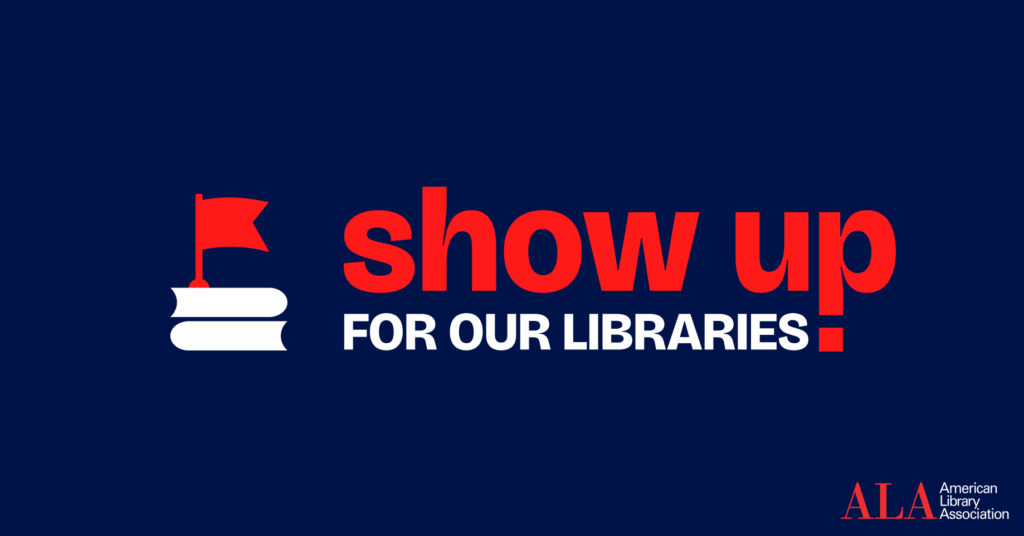Written By: Amy Shaw, Reference and Instruction Librarian, Georgia State University
May 2025 Observances & Conferences
- Jewish American Heritage Month
- Asian American, Native Hawaiian, and Pacific Islander Heritage Month
- Mental Health Awareness Month
- Military Appreciation Month
- May 26: Memorial Day
Conferences:
- May 7-9: Delaware and Maryland Library Associations Joint Conference
- May 13-15: Utah Library Association Conference
- May 14-16: Florida Library Association Conference
- May 19: Vermont Library Association Conference
- May 19-20: Maine Library Association Conference
- May 19-20: Massachusetts Library Association Conference
- May 21-22: Rhode Island Library Association Conference
- May 29-31: New Jersey Library Association Conference
Impostor Syndrome in Librarians: Shushing Your Inner Saboteur
Socrates and Albert Einsteinâtoken âsmart peopleâ you sarcastically call your little sister when she does something dumbâboth expressed that the more they learned, the less they felt like they knew. So if I always feel overwhelmed and a little out of my depth, Iâm in good company, right?
Even though I realize that smarter people tend to underestimate their abilities while those who test lower in logic and grammar tend to vastly overestimate their abilities (see any comment section on any social media post ever), and even though I realize that I am above average intelligence, I still cannot shake the feeling that I am completely unqualified forâŚwell, much of anything. And itâs not just my career as an instructional librarian, despite my years of classroom teaching, three degrees, and 11/12ths of a graduate certificate in Online Teaching Design & Development. I go home daily to two small faces that look to me as an authority on when they can watch Cocomelon and when they need to take a bath, despite feeling like a small child myself most days. My point is: Impostor Syndrome is real, itâs strong, and it runs rampant amongst newer librarians.
What is Impostor Syndrome?
It was two academics, psychotherapists Pauline R. Clance and Suzanne Imes, who âfirst coined the term âimpostor phenomenonâ in 1978,â finding that âwomen battle internally with societal expectations and their own self-expectationsâ (Anderson-Zorn, Davis, Nowak, and Stankrauff, p. 503). Subsequent studies have found that men experience these feelings at a comparable rate (Clark, Vardeman, and Barba, p. 256). Meanwhile, Google searches for the term âimpostor syndromeâ have been on the rise since 2010 (Minton, âThe Rise and Rise of Impostor Syndromeâ), which many experts agree is less an indication that it is becoming more common and more an indication that awareness of the phenomenon has grown.
Data scientist Jon Minton has an alternative theory, though: the rise of social media. The ever-present updates from friends and influencers in carefully curated posts that maximize perfection and minimize struggle contribute to the idea that we are less successful than those in our online community. Whatever the cause, a survey of 5000 UK residents recently found that Information Research and Analysis workers have one of the highest prevalences of Impostor Syndrome with 67% (Moss, âImposter syndrome: Workplace prevalence by sector, gender and ageâ).
Impostor Syndrome in Librarians
Melanie Clark, Kimberly Vardeman, and Shelley Barba personalize this phenomenon for librarians in a paper that laments that â[t]he tasks of a modern librarian within an organization are fluid and often an amalgamation of vastly different roles such as educator, social worker, IT professional, and printer troubleshooter. Striving to be seen as an authoritative figure can lead to internal conflict when the librarian does not feel he or she is knowledgeable or experienced with the subject at handâ (Clark, Vardeman, and Barba, p. 255). For college and research librarians, they argue, it is worse because they âoften serve as liaisons to faculty with more education and experience, which can exacerbate those feelings.â In addition, it was younger librarians and newer librariansâthose in their first three years of employmentâwho reported the highest incidence of Impostor Syndrome (Clark, Vardeman, and Barba, p. 265). Impostor Syndrome, although not a recognized psychological disorder, can cause library workers to feel less confident, less motivated, and less likely to apply to higher positions, thus robbing institutions of significantly talented individuals in management roles.
What Can We Do?
Use Words of Affirmation: Well, first of all, not to sound like an elementary school guidance counselor, but positive self-talk can go a long way. We tend to focus on our negative experiences even when we have significantly more positive ones. Reminding ourselves of our positive experiences, our credentials, and most importantly, our dedication to a growth mindset can silence what Mama RuPaul calls our âinner saboteur.â
Re-Frame Impostor Syndrome: Drawing from Lena Palaciosâs words in a roundtable on the underrepresentation of Latinx faculty, Jacqueline Hidalgo argues that one way to beat impostor syndrome is to re-frame it: âwe need to throw away our impostor syndrome and embrace a newly defined infiltrator syndromeâ (qtd. in Hidalgo, p. 86). As a Latinx scholar, Hidalgo chooses to operate from outside the mainstream academic structure by allowing her differences and insecurities to empower her to change the status quo rather than letting them keep her from making meaningful contributions.
Re-Define What It Means to Be Successful: Just as social media posts do not always reflect reality, the American notion of success does not always reflect our own personal goals and values. We often equate money with success, which means if weâre not striving to achieve the highest promotion and be the best in our field, then weâre failing. In reality, this kind of thinking actually makes us doubt ourselves, which in turn causes us to be less productive and successful at the job we currently have. Instead of focusing on a theoretical future, focus on what you can control and strive to be the best YOU can be.
Seek Support in the NMRT: I cannot tell you how many times I have shared personal struggles (some might call it over-sharing) only to be met with dozens of friends and family echoing the same sentiments along with âI thought I was the only one.â Many people fear sharing how they feel because they think it will make others doubt their abilities as well. The ALA New Member Round Table is comprised of early-career librarians who are there to support each other; many of them struggle with similar doubts, but even if they donât, this community is built for nurturing, not for judging. In addition, there are NMRT initiatives that are designed to foster confidence in newer librarians, such as the mentorship program. Donât hesitate to take advantage of this community and all it has to offer.
Maintain Your Self-Worth: Sometimes Impostor Syndrome comes not from our own imaginations, but from real, lived experiences. Repeated rejections or career setbacks can make us feel that we are not good enough. But as a community theatre actress who has been rejected more than a time or two, I can tell you that rejection does not equal lack of talent. Evaluations and promotions are subjective and do not exist in a vacuum. Not only are there often other factors at play that have nothing to do with us, but sometimes a job just isnât a good fit, regardless of how capable we are. I am a talented singer and actress, but if I tried out for Hamilton, I wouldnât expect to be cast as Aaron Burr (I still maintain I could be a great gender-swapped George Washington). My point is that equating these experiences with our own self-worth is never truly reflective of our talents and capabilities. My husband likes to remind me when Iâm struggling with something that progress isnât linear. Rarely do we see someone start at 0 and move incrementally and steadfastly in a straight line towards their goal. Rather, the dips and valleys on the graph reflect learning experiences that are sometimes just as valuable as the zeniths.
Conclusion
The experience of Impostor Syndrome seems to be universal, although those of us who are newer to the field, younger, or in marginalized communities often feel it the worst (Moss, âImposter syndrome: Workplace prevalence by sector, gender and ageâ). Librariansâor those of us who have âa degree in all information,â as my best friend refers to his MLISâstruggle with this phenomenon because of the nature of our jobs. In academic settings, we are often faculty in name only. In public settings, we perform just as many social work job functions (for which we are unqualified) as we do circulatory ones. For archivists, the pressure to be productive and âvisibleâ despite a job that operates behind-the-scenes can lead to self-doubt. Using the tools above may help you alleviate yours, but feel free to share your own tips as well.
I hope that we will continue to study this phenomenon more closely in library workers as well as continue to have a conversation about how we can eradicate it so that we can be more productive and successful.
References
Anderson-Zorn, A. K., Davis, M. A., Nowak, D., & Stankrauff, A. (2021). Our Comeback Story: Impostor Syndrome in the Archival Profession. The American Archivist, 84(2), 502â519. https://www.jstor.org/stable/48737560
Clark, M., Vardeman, K., & Barba, S. (2014). Perceived Inadequacy: A Study of the Imposter Phenomenon among College and Research Librarians. College & Research Libraries, 75(3), 255â271. https://doi.org/10.5860/crl12-423
Hidalgo, J. M. (2019). âAssume You Donât Belongâ: A Mindset for Academic Survival. Journal of Feminist Studies in Religion, 35(2), 85â87. https://doi.org/10.2979/jfemistudreli.35.2.08
Minton, J. (2023, August 30). The rise and rise of imposter syndrome. LinkedIn. https://www.linkedin.com/pulse/rise-imposter-syndrome-jon-minton
Moss, R. (2023, October 31). Imposter syndrome: Workplace prevalence by sector, gender and age. Personnel Today. https://www.personneltoday.com/hr/imposter-syndrome-prevalence-uk-research/
Vick, Brooke, & et al. (2020). Common Academic Experiences No One Talks About: Repeated Rejection, Impostor Syndrome, and Burnout. 15(3), 519â543. https://jstor.org/stable/community.32019555




